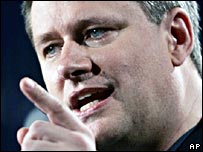We are on the eve of revolution.
MEXICO CITY, Sept. 16 (Xinhua) -- Hundreds of thousands of supporters of leftist Andres Manuel Lopez Obrador elected him as "legitimate president" of a parallel government on Saturday in protest against the allegedly flawed July presidential elections.
Reminding me of a certain incident in the spring of 1917 in Russia when another dual power situation occured....Workers Power and the Russian Revolution
The revolutionary reawakening of MexicoBy Alan Woods
The revolutionary mass movement that has been brought into being in Mexico by the electoral fraud perpetrated in the Presidential elections has reached a point where clearly the power is there for the taking. If there were a genuine revolutionary party at the head of the masses we would be on the eve of socialist revolution.
Friday, 08 September 2006
Woods is of course a Trotskyist and his Leninist approach to dual power is the same old flawed theory that the masses need the party to take state power. Indeed the masses need to use this situation of dual power a ciris in the Mexican State to remove the army, police, courts, etc. from their communities the very basis of bourgoise power. That power does not come for a party but through the creation of community assemblies and workers councils. Always has always will.
The Zapatista's offer a very real model of this kind of community engagement crucial to this current situation of dual power. The competing political parties who compteted in the election and have declared themselves victors, now are appealing to the people to recognize their government as legitimate. The fact that the this creates a very real power vacuum can allow the people and their autonomous organizations an opportunity to challethe very structure of the State in Mexico. Something that could not have been done in 1910-1911 during the first Mexican revolution.
Backgrounder: Mexico's dangerous political chasmTo many observers, López Obrador's behavior only confirms charges made during the campaign that he represents ``a danger to Mexico." The reality is more complicated, and understanding it requires some appreciation of how the losing side views the controversy. To them, López Obrador's reaction is not demagoguery from a politician who cannot accept defeat, but rather a natural response to past electoral fraud and to deeply rooted injustices in Mexican society.
Mexico has seen many protests like those orchestrated by López Obrador. They represent a revival of the so-called second round -- practiced by both Calderón's National Action Party, or PAN, and López Obrador's Party of the Democratic Revolution, or PRD, during the early 1990s -- in which candidates cheated of victory by the long-ruling Institutional Revolutionary Party, or PRI, took to the streets to ``defend the vote." Such tactics are far less justifiable since a set of electoral reforms took effect in 1996, but memories die hard. The left faced more fraud than the more conservative PAN did over the last two decades, and López Obrador himself lost a deeply flawed election for governor of Tabasco in 1994.
Even the post-reform period has not been free of controversies. In 2003, the PAN joined forces with the PRI to name the leadership of the independent agency that administers elections over the objections of the PRD. Then, last year, PAN and PRI legislators impeached López Obrador as mayor of Mexico City on a minor charge, and Mexico's attorney general attempted to prosecute him. Had legal proceedings continued, they would have prevented López Obrador from running for president. Only widespread public opposition and mass protests forced the administration of President Vicente Fox to back down.
We are on the eve of Revolution in Mexico again, as we were almost 100 years ago.
The revolution of 1910 was not just a national revolution but one that impacted directly on America, and whose impact reamains today. The current American political and media campaign against Mexican migrants is the result of the 1910 revolution. The porous border works both ways, while imposing NAFTA on Mexico was deemed as the solution to the problem of Mexicos lack of industrial development, it has done little to stop the tide of Central American economic refugees seeking the good life in America, as America exploits their countries.
Americas intervention in the Mexican revolution and in all subsequent revolutions in Latin and Central America is based on the imperialist policy of the Munroe Doctrine. It is an extention of the plantation poltical economy that dominated the Old South in the U.S. It was Confederate America that invaded and took over the former Spanish colonies in the region. And they did it as an expansion of their plantation agrarian economy.
What Amercia exported was a deliberate policy of economic underdevolopment, aligning with Hacienda owners to maintain a cheap labour peasant economy. That underdevelopment continues today with minimal industrialization in the region, labour intensive, and export driven. Thus NAFTA and other economic agreements are still based on the American plantation mentality of the Confederacy. The ideal being America manufactures and exports, Latin America, Mexico, Central America and the Caribean provide raw resources, agricultural products, and parts.
The United States in Central America, 1860-1911: Episodes of Social Imperialism and Imperial Rivalry in the World System.
In the nine essays which comprise the book, Schoonover illustrates this theme and draws out the complexities of competition between social imperialistic nation/states, in particular the rivalry between the United States and Germany for Central American trade, and the policy conundrum when the dynamics of foreign policy conflict with the ideology of racial hierarchy.Each essay deftly places an important, often well-known, incident in U.S.-Central American relations into a world systems conflict. From this point of view, confederate diplomacy toward Central America is seen as a new peripheral state exerting the political power of cotton because confederate diplomats misunderstood the relationship of their political economy within the world system of the time. During the Civil War, moreover, they sought bases for privateering and trade but had to overcome the recent legacy of filibustering expansionism. After the Civil War, as Schoonover argues in "George McWillie Williamson and Postbellum Southern Expansionism," the South, now with the full support of the northern industrial elite, continued to seek expansion southward. Since "overproduction," the received wisdom of the time, overseas outlets were considered by many the key to maintaining jobs as a means to social stability. To bring to life the dynamics of tensions between various metropole states competing for economic advantage in Central America as well as the tensions between the imperatives of social imperialism abroad and aspects of the domestic ideology, Schoonover presents two fascinating case studies. In the Eisenstuck affair of 1878-79, a dispute erupted after the step-daughter of Paul Eisenstuck, who married into a Nicaraguan family and later filed for divorce. This dispute led to alleged violence against the Germans, and the German government sought U.S. support. At this point the United States was caught in a dilemma: if the United States did no support Germany, the principle of rights for foreigners would be compromised. If the United States did support Germany, it risked the enmity of Nicaragua and might compromise that founding document of American dominance--the Monroe Doctrine. Either way, the status of the United States as the primary metropole power in the region was at stake.
At times tensions within the United States' world view, ideology and the demands of social imperialism were played out in Central American diplomacy. In his chapter titled "The World Economic Crisis, Racism, and U.S. Relations with Central America, 1893-1910," Schoonover examines the dilemma American diplomats faced representing North American Negro workers in Guatemala. Within the context of early-twentieth-century racism, does the United States exert its power to protect citizens of color against unjust charges? Race also played an important role, Schoonover argues, in rationalizing Theodore Roosevelt's actions in Panama during the revolution of 1903. In this essay, Schoonover also analyzes the arguments of a Columbia University Law Professor's memo justifying Roosevelt's actions in terms of American exceptionalism: "Exceptionalism places the U.S. government beyond contract and international laws." This idea from the past has been resurrected today.
Like Russia, the Mexican revolution was an inspiration for a mass movement to overthrow capitalism. Like Russia it was peasant based, a movement for land reform, and thus was limited in its scope. The underdevelopment of the working classes in both countries limited their ability to confront the worlds industrializing hegemon the United States. Europe itself was aflame in revolutionary movements at the end of WWI and only the boom in the North American economy offset the pending doom that old Europe faced.
As America intervened in Mexico it too intervened to prop up old Europe. It could because of a crucial new resource that would fuel post WWI American capitalism and its resulting Fordist modes of production. Oil.
But still another economic power stands in the wings of the world political theatre: petroleum.The victory of the Entente in the World War was in the last analysis a victory of the superior war technology of America. For the first time oil triumphed over coal for the heating of the submarines and ships, of the aircraft, motors, tanks, etc., was accomplished with oil and by a technology which had undergone especially high development in America and opposite which the German technology was backward. After the ending of the World War, the most pressing imperative for America, if it did not want to lose again the hegemony won over world economic domains, was to bring the oil production of the world into its hands in order to thus monopolise the guarantees of its ascendancy.
The richest oil field lie in Asia Minor (Mossul) and belong to the zone of the English protectorate; the way to them leads over Europe. American oil capital began very quickly to secure this path for itself. Starting from France it pressed on by courtesy of the gesture of the French statesman or the bayonet of the French military towards Czechoslovakia, Poland, Yugoslavia, Bulgaria, as far as Turkey. The war between Greece and Turkey, the revolution in Bulgaria, the Lausanne talks, the Balkan incidents, the military convention between France and the little Entente, etc., are more or less connected to the perpetual striving of American oil capital to procure for itself a large base of operations for the confrontation which must follow sooner or later in the interest of world monopoly over oil with the competitors, England and Russia. Just as the oil trust has been at work for decades in Mexico to obtain dominion over the Mexican oil fields through a chain of political shocks, putsches, revolts and revolutions, so it also leaves no stone unturned in Europe in order to take possession of the approaches to the oil districts of Asia Minor, against every competitor and every opposition. Germany represented the only gap in the path. As the endeavours to detach South Germany from North Germany and bring it under French overlordship did not lead to the goal—in spite of the enormous sums made ready for the financing of the Bavarian fascist movement and anti-state conspiracy and because the interests of New York clashed here with the interests of Rome, oil capital applied other tactics. Supported by the depreciation of money consequent on inflation and certain stock-exchange manoeuvres, it bought up one economic combine after another and thus gradually brought the entire power of German capital under its control. When the Stinnes combine, for which the proffered quota of shared profits was not high enough, offered resistance and opposed its conversion into the mere appendage of an international community of exploitative interests, force was resorted to. The military occupation of the Ruhr meant the fulfilment of long-cherished wishes of oil capital just as much as it was a deed after the heart of the French mining industrialists.
From the Bourgeois to the Proletarian Revolution by Otto Ruhle 1924
The dual power crisis in Mexico, the turn to he left in Latin America are the result of American intervention in the regions since the 19th Century. The industrialization of these regions in the 20th century opened the possibility of real proletarian revolution. Unfortunately that development was not as advanced as Fordist production in the U.S. Thus these revolutions were limited to national movements and land reform for the mass of the population who were peasants.
Bolivia today is a prime example of this contradiction, that the working class in that country remain indigenous peasants in an underdeveloped economy. They may mine, and work in gas plants but their basis of existence is sharecrops predominately cocaine. Venezuela, Brazil, Chile, Argentina all face similar problems of underdevelped industrialization because of a lack of Fordist production. Only Mexico has a fordist economy. One that can compete with America.
And contrary to the purpose of NAFTA it was not to allow for greater development of this fordist base in Mexico, but to act as a buffer, to restrict that competitive development.
The Mexican crisis along with the move to the left in Latin America, shows that contrary to the myth of American Hegemony and it's Cold War victory, revolution is still the counterbalance to Imperialism and rapacious capitalism.
Argentina proved that when its economy went down the drain. Dual power was created in the communities, new currencies and barter were developed, community assemblies organized all forms of social and ifrastructure needs. Workers seized their bankrupt factories and made them operational, and profitable. A dual power situation still exists in Argentina, regardless of the State or ruling party in power.
Viva La Revolucion!
Find blog posts, photos, events and more off-site about:
Mexico, Revolution, Crisis, Election, America, Oil, Imperialism, Confederacy, Monroe, Reed, RussinaRevolution, Zapatisata, WorkersControl, migration, migrants, bordersecurity


